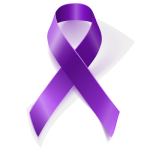People with Eating Disorders Can and Do Recover
For the majority of people with an eating disorder there comes a time when their lives become unmanageable and they make a decision to seek help. They may be afraid to seek help because recovery means letting go of the eating disorder. Up to this point, the eating disorder has brought reassurance, and safety, and the experience of being in control.
The longer it is established, the more it will take on a life of its own and take over the life of the person affected. The person is then caught in a bind. For many, overwhelming feelings of helplessness, guilt, shame and self-disgust become a block to seeking help. Fear of having their eating disorder taken from them, fear of letting it go, and fear of change are huge barriers to getting help.

